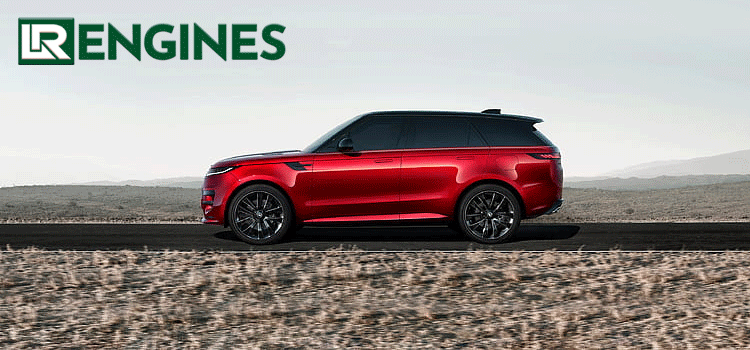Can the Range Rover Engine 3.0 Withstand Extreme Heat and Cold?

The Range Rover Engine 3.0 is known for its reliability, power, and versatility. But one important question for many drivers is how well this engine will perform under extreme temperatures. From the freezing cold of the Arctic to the scorching heat of a desert, the ability of the engine to withstand these conditions is vital. We explores the design, materials, and features that make the Range Rover Engine 3.0 a tough choice for any climate. Besides, we examine the advantages of reconditioned engines, especially for those needing affordable and durable solutions.
Advanced Engineering for Temperature Tolerance
Advanced engineering for harsh environments characterize the Range Rover Engine 3.0. Among other remarkable features of the Range Rover, aluminum ensures toughness but balances that with low weight. Design aspects include using materials resistant to high heat for its resistance against warping or cracking. Additionally, this design integrates cold-resistant alloys in case it operates during extreme cold to provide structure and functionality under these freezing conditions. Together, these make an engine well-adapted for the tough operation conditions under the hands of the adventurous.
Cooling Systems for High-Temperature Performance
In extreme heat, effective cooling is paramount. The Range Rover Engine 3.0 has an advanced cooling system that features high-capacity radiators, auxiliary fans, and temperature-regulated coolant circulation. These components work together to dissipate heat efficiently, preventing overheating and maintaining optimal performance. The system’s precision engineering ensures that the engine can endure prolonged exposure to high temperatures without compromising on power or fuel efficiency.
Lubrication Versatility in Temperature Range
Lubrication is one of the most critical aspects of an engine’s performance, especially in extreme conditions. The Range Rover Engine 3.0 utilizes sophisticated synthetic oils that have viscosity over a broad temperature range. These lubricants minimize friction and wear, which ensures that the engine operates smoothly whether it is started on a freezing winter morning or run continuously in scorching heat. This versatility adds to the durability and reliability of the engine.
Cold Start-Up Technology in Cold Weather
One of the significant challenges when it comes to engine starting in extremely cold temperatures is handled exceptionally well by the Range Rover Engine 3.0. The car features cold-start technology, with pre-heaters and low-viscosity oils to reduce the load at the time of ignition. The frost-resistant parts used in the engine also make sure that all critical systems continue to work in temperatures close to absolute zero. Therefore, the Range Rover Engine 3.0 proves to be an efficient winter-weather performer.
Testing Under Extreme Conditions
Land Rover rigorously tests the Range Rover Engine 3.0 in extreme climates to ensure its durability and performance. From the coldest Arctic conditions to the hottest desert terrains, the engine undergoes simulated and real-world testing. These trials assess its ability to maintain power, efficiency, and reliability. The results consistently demonstrate the engine’s resilience, affirming its reputation as a powerhouse capable of withstanding extreme environments.
Reconditioned Engines’ Benefits for a Harsh Environment
The reconditioned Range Rover engine provides a price-friendly and environment-friendly option at the same time, without diminishing the performance aspect. It is extensively checked, replaced, and up-graded in comparison with the new one to attain or surpass its original specifications. Reconditioned engines are really helpful for people living in tough climates. Since it is an economical option without the loss of new engine features such as the durability and efficiency, extreme climate conditions do not burden the owners.
Maintenance Practice for Best Performance
To ensure the Range Rover Engine 3.0 performs well in extreme temperatures, regular maintenance is necessary. Regular checks on the cooling system, oil levels, and battery health are essential. Using manufacturer-recommended fluids and parts further enhances the engine’s resilience. For reconditioned engines, maintenance schedules ensure their longevity and reliability, especially in demanding environments.
Comparison of Range Rover Engine 3.0 with Competitors
When compared with other luxury SUVs, the Range Rover Engines 3.0 is more flexible in extreme temperatures. While other competitors may be more efficient in specific areas, Range Rover’s design and engineering allow for consistent performance in a variety of conditions. Reconditioned engines also boast this advantage; they are cheap without compromising quality, making them the go-to choice for adventurous people on a budget.


